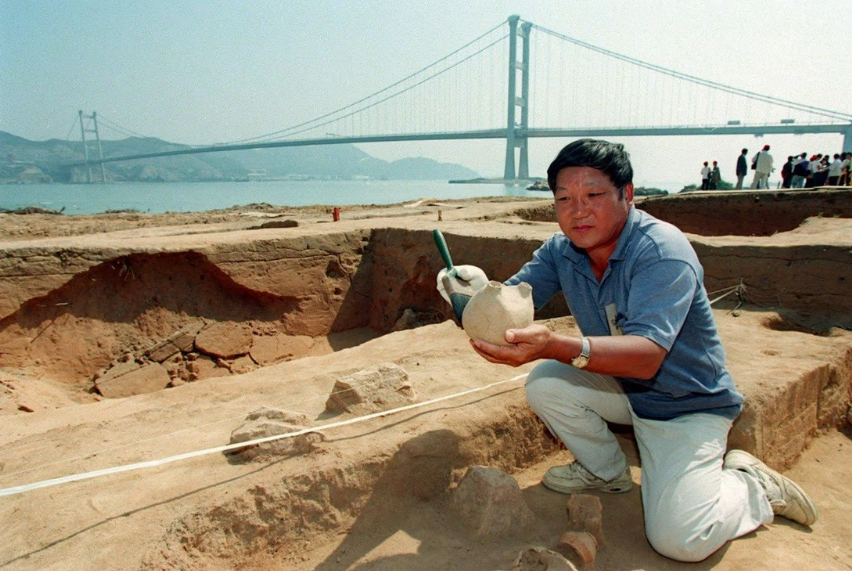A study published in The Journal of Island and Coastal Archaeology in late February found that a small population of neolithic Hongkongers were highly reliant on fish.
Christina Cheung, a researcher at Vrije Universiteit Brussel in Belgium who wrote the study, said these people were so reliant on seafood that they probably did not rely much on farming for food or hunting land animals.
“For people who lived in a coastal area, I would expect them to eat some marine food, but I was surprised to see that, in these ancient Hong Kong people, they were reliant on marine protein to such an extreme extent,” she said.
The study analysed bone samples from a group of 13 neolithic skeletons found on Ma Wan island at a site called Tung Wan Tsai, which modern Hong Kong residents may recognise as a small beach next to the island’s ferry pier.
Cheung found the people had a diet with few known peers in southern China or Southeast Asia.
Similar studies on neolithic peoples from Vietnam, Thailand and Fujian province in southeast China showed a much higher proportion of their diet came from the land. Even skeletons found locally in Pui O and Lamma Island indicated a more terrestrial diet which the study suggested could be due to the simple fact that Lamma and Lantau are far larger islands than Ma Wan.
The cultures that did have similarities to the Ma Wan community were the Chulmun culture on the Korean peninsula, the Jomon people in Japan and the Boisman in the Russian Far East.
“I was not trying to compare the type of food they ate, but this site in Hong Kong is unique in that it is not comparable to the region, but it is more similar to regions that are very, very, very far north,” said Cheung.
As for what type of seafood the Ma Wan people may have eaten, zooarchaeological findings in the area point to large deepwater fish, molluscs, dolphins, sharks and porpoises. The study hypothesized that this meant the people were advanced fishermen capable of targeting large fish.
For the full article, please see: https://www.scmp.com/news/people-culture/article/3172802/ancient-group-…

